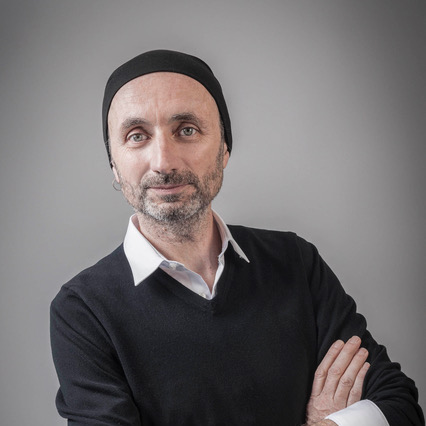Working at the Interface Between HCI and Health: Tales of Challenges and Triumphs
Ann Blandford
University College London
27 mars 2024
Novel technologies, including Artificial Intelligence, Virtual Reality, telemedicine, robotics, wearables and more, offer huge promises in healthcare – for use by clinicians, patients or both together. Yet many design concepts that look great on paper or in localised settings fail to scale up into impactful clinical practice. In this talk, I will reflect on experiences of working with interdisciplinary teams on various health technology projects. These teams have involved clinicians, patients, engineers, entrepreneurs, epidemiologists and health economists as well as HCI specialists. I will draw on examples to discuss some of the challenges as well as the triumphs and present lessons learned from working in multi-disciplinary teams. These include lessons about design processes, involving users, dealing with regulations and simply working with people who have different backgrounds and values to your own. By building on these experiences, we improve the likelihood of designing and deploying healthcare technologies that are truly impactful.

Bio: Ann Blandford is Professor of Human–Computer Interaction (HCI) at University College London. She is also a member of the ACM CHI Academy and recipient of an IFIP TC13 Pioneer award. She has led many research projects on the design of systems to support people managing individuals’ health. She works closely with patients, clinicians, and healthcare engineers, in both the UK and internationally. Her current projects address a range of health and wellbeing challenges; these include helping people manage diabetes, sexual health and Long Covid. She has published widely on the design and use of interactive health technologies, and on how technology can be designed to better support people’s needs and values, recognising that people are living complex lives and often managing complex health conditions. She was technical programme chair for IHM-HCI 2001, HCI 2006, DSVIS 2006, NordiCHI2010 and ICHI 2016.
Conscience de la Situation Automatisée pour Augmenter l’Interaction Humain / Machine en Chirurgie
Pierre Jannin
INSERM, University of Rennes
28 mars 2024
Avec 250 millions d'interventions chirurgicales par an dans le monde, la qualité de la chirurgie est une question sociétale cruciale. Alors que la chirurgie s'est considérablement améliorée au cours des 100 dernières années, il reste encore de nombreux points à améliorer, tels que la détection et un traitement plus précoces, réduire les aspects invasifs de la chirurgie, les erreurs médicales, les coûts, ... Nous sommes au début d'une révolution dans le domaine de la chirurgie, où l'intelligence artificielle combinée à la robotique et à l'imagerie médicale modifiera radicalement la salle d'opération. Néanmoins, ces changements technologiques doivent s’insérer dans une activité qui reste foncièrement humaine, mettant en jeu professionnels de santé de diverses spécialités et disciplines. D’autant plus dans cette tendance à l’automatisation ou à l’assistance des taches, la collaboration humain-machine a pour objectif de bénéficier des meilleurs des deux mondes.
Dans mon exposé, je présenterai le principe de conscience de la situation automatisée dans le domaine chirurgical en soulignant l’importance d’une approche holistique incluant aspects techniques et non techniques, dont les facteurs humains. Je présenterai pourquoi et comment les compétences chirurgicales doivent être étudiées et modélisées, y compris les compétences techniques et socio-cognitives, en utilisant la science des données chirurgicales et l'apprentissage automatique. Je présenterai quelques exemples d’applications pour l’assistance au geste et pour l’apprentissage par simulation. Cette combinaison d'intelligence artificielle et de facteurs humains est le moyen de garantir une collaboration efficace, sûre et respectueuse des spécificités humaines.

Bio : Pierre Jannin is an INSERM Research Director at the Medical School of the University of Rennes (France). He is the head of the MediCIS research group from both UMR 1099 LTSI, Inserm research institute and University of Rennes. He was awarded the PhD degree from the University of Rennes in 1988 on multimodal 3D imaging in neurosurgery and the “Habilitation” (HDR) from the University of Rennes in 2005 on information and knowledge assisted neurosurgery. He has more than 30 year experience in designing and developing computer assisted surgery systems. His research topics include surgical data science, surgical robotics, image-guided surgery, augmented and virtual reality, modeling of surgical procedures and processes, study of surgical expertize, surgical training and validation methodology in medical image processing. He authored or co authored more than 150 peer-reviewed international journal papers. He was the President of the International Society of Computer Aided Surgery (ISCAS) from 2014 to 2018 and the General Secretary from 2004 to 2014. He was board member of the MICCAI society from 2014 to 2018. He is an elected MICCAI Fellow since 2018. He is senior member of the SPIE society. He is the Editor in Chief of Computer Assisted Surgery journal (Taylor&Francis). He is Deputy Editor for the International Journal of Computer Assisted Radiology and Surgery (Springer). He was President of CARS 2019 conference in Rennes (France) and Program Co-Chair of MICCAI 2017 in Quebec (Canada). He is co-founder of IPCAI conferences and was Co-General Chair from 2010 to 2016.
Crafting the Image in Surgery
Helena M. Mentis
University of Maryland, Baltimore COUNTY
29 mars 2024
Recent years have seen a growth in the possibilities of new imaging and interaction technologies in surgery. With these new technologies, a new practice is instantiated in creating a view of the body for the surgeons to work with. In this talk, I discuss the productive and cross-referential nature of surgical practice and image use. I will present findings from imaging interaction practices in a wide array of surgeries and from the design and deployment of imaging interaction systems including gestural interaction devices and augmented reality systems. Drawing on observations and analysis of the work around and through the images, I examine how the surgeons craft a view in order to facilitate the co-construction of knowledge and shared decision making. I use these findings to discuss further design directions for intraoperative image interaction as well as surgical telemedicine.

Bio : Helena Mentis is a professor in the Department of Information Systems at the University of Maryland, Baltimore County. Generally, her research contributes to the fields of human-computer interaction (HCI), computer supported cooperative work (CSCW), and health informatics. She investigates situated communication and collaboration practices in healthcare, and, in turn, develops and deploys new mechanisms for collaboratively sensing, presenting, and interacting with information. Specifically, her work has included surgical telemedicine systems to support surgeon remote collaboration and education, movement sensor systems for Parkinson’s patients to see and discuss activity and bodily experience with their healthcare providers, and browser plugins for those with dementia to negotiate online safety with their partners, among others. She conducts her research through a sociotechnical lens – one in which we cannot extricate technical systems from ‘being in the world’. She has over 50 publications in both high-impact HCI and healthcare-focused journals and highly selective conference papers, has been awarded $3M in funding from the NSF (including a CAREER award), Mozilla Foundation, UMBC and Maryland Technology Development Corporation, and secured U.S. patents based on NSF-funded research. She is the past ACM SIGCHI President (2018-2021) and has been on the editorial boards of the ACM Transactions on Computer-Human Interaction, International Journal of Human Computer Studies, Personal and Ubiquitous Computing, and Computer Supported Cooperative Work.


